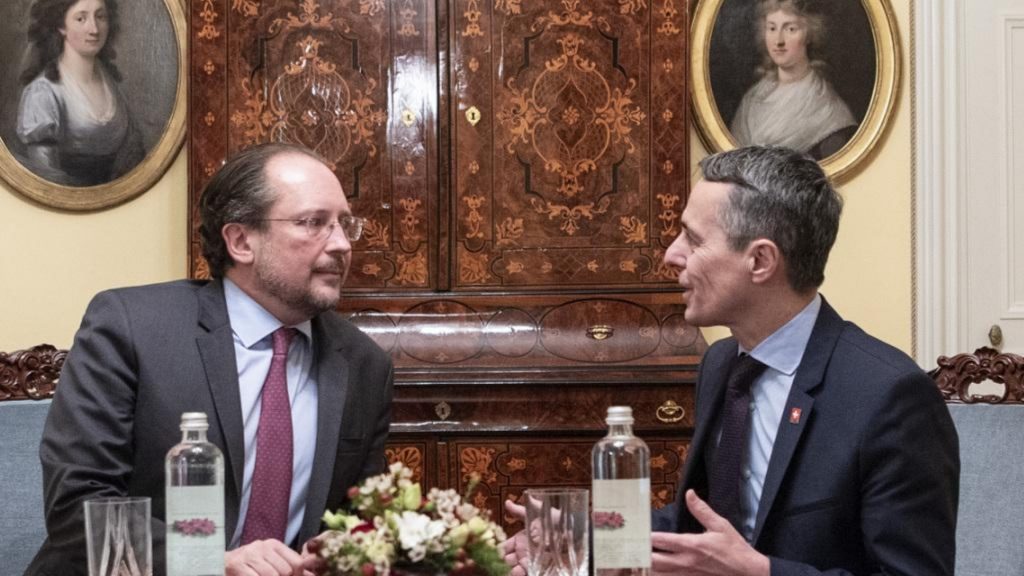
Austria and Switzerland agree on a “strategic partnership”
This content was published on Jun 11, 2021-19:58
(Keystone-SDA)
Austria and Switzerland agreed on a “strategic partnership” to cooperate more closely. Foreign Minister Ignazio Cassis and his Austrian counterpart Alexander Schallenberg signed a declaration of intent for this purpose this evening in Vienna.
The aim is to intensify exchanges and forge partnerships in core areas such as promoting peace, prosperity, sustainability, epidemic control, research and youth exchange.
Prior to Cassis’ visit to Vienna, the Federal Foreign Office (FDFA) specified that the Declaration of Intent on the Strategic Partnership, approved by the Federal Council on February 24, is a non-binding instrument that allows for the expansion of cooperation in specific sectors. Among other things, while strengthening the representation of interests and mutual assistance in third countries.
Schallenberg stressed that this partnership should become a long-term asset for both countries. “Especially when it comes to global and European challenges, exchange and close coordination with neighbors and friends is essential,” said the Austrian foreign minister. “Not only do we face the same challenges, but we also share the same values and life models.”
Discussions are already underway at the level of ambassadors and experts to deepen strategic cooperation, for example on the issue of border control in the Lake Constance region or in the trade sector.
This is Austria’s first “strategic partnership”. Chancellor Sebastian Kurz announced in August 2020 his intention to conclude such agreements with other innovative countries in the coming years, thereby promoting trade in the European Union. Norway, South Korea, Australia, New Zealand, Israel, Uruguay, Ethiopia, Costa Rica and the United Arab Emirates are evaluated by Vienna. The goal is to promote tailored economic and scientific cooperation.
For Switzerland, the “strategic partnership” with Austria comes after the Federal Council abandoned negotiations on an institutional framework agreement with the European Union at the end of May after seven years of negotiations. For Berne, the crucial points were the rules for state assistance, Swiss wage protection measures, and European citizens’ access to Swiss social security benefits.
Tomorrow Ignacio Cassis will participate in the European Forum in Wachau, where he will explain Switzerland’s views after the decision of the Federal Council on May 26. Also speaking at the meeting will be Kurz, Prime Minister of Lithuania Ingridda Simonetti, and the European Commissioner for Financial Planning and Budget, of Austrian nationality, Johannes Hahn. At the end of the forum, the Federal Chancellor will meet with the Chancellor in private.
The Wachau European Forum is a conference of mainly Austrian personalities dedicated to discussions on European politics, which has been held every year since 1995 (except 2006) at Göttweig Abbey, in the Wachau region of Lower Austria. Over the years, the event has seen the participation of many prominent European politicians.

“Organizer. Social media geek. General communicator. Bacon scholar. Proud pop culture trailblazer.”

